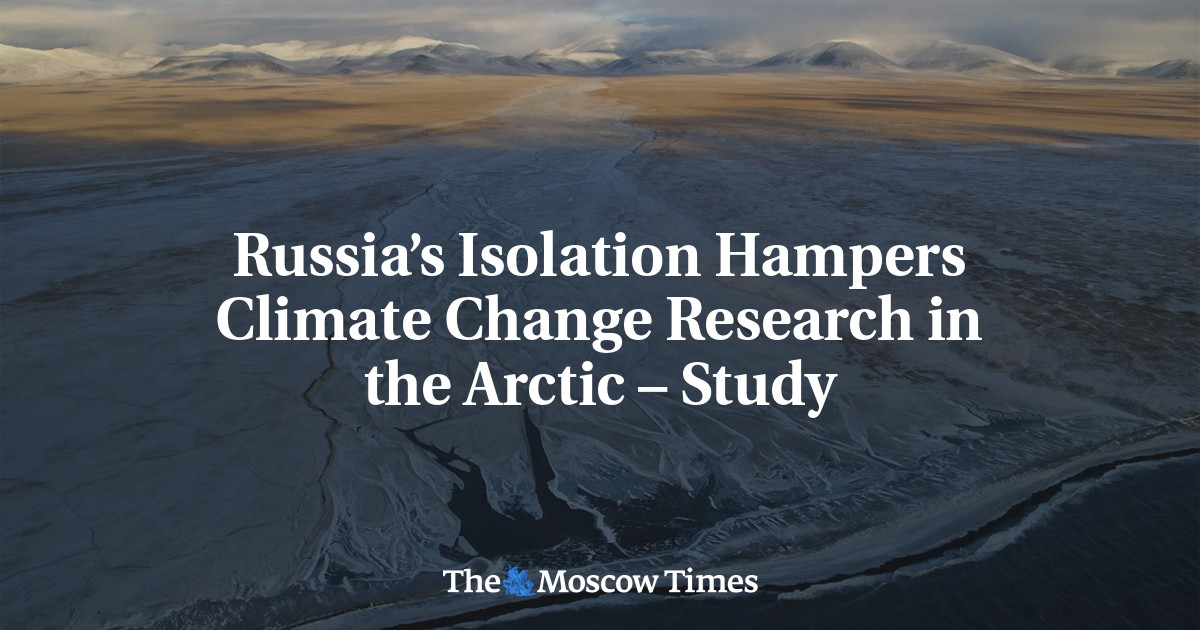
Russia’s exclusion from the international scientific community since the start of the war in Ukraine hampers global researchers’ understanding of the Arctic at a time when climate change is rapidly changing the region’s ecosystems, according to a new study published in the British scientific journal Nature.
The study’s authors found that removing Russian field stations from the International Network for Terrestrial Research and Monitoring in the Arctic (INTERACT) — a global constellation of 60 field stations in the Arctic and other northern latitudes — led to a “marked” loss of data used to monitor changes in ecosystems.
Moreover, Siberia’s extensive taiga forest is not represented at all when Russian stations are excluded from the network — which the authors warn could be “particularly detrimental” for monitoring melting permafrost, an area of major concern for climate scientists.
“As ground-based observations that form the basis for assessments of the region’s state will now come mainly from the non-Russian parts of the Arctic, the overall ability to monitor the status and trajectory of the Arctic biome may be severely limited over the foreseeable future,” the authors write.
“Because of the geopolitical consequences of the Russian attack on Ukraine, the ability to both track and further project the development of the Arctic biome following climate-induced ecosystem change has deteriorated,” they continue.
The study’s authors urge the global scientific community “to strive for establishing and improving a research infrastructure and standardized monitoring programs representative of the entire Arctic,” which they argue can be accomplished in part by promoting open-access data sharing.
“Sadly, until that is implemented, the ability to support and advise local and global communities will decrease further due to the loss of Russian stations representing half of the Arctic’s landmass,” they conclude.
Following Moscow’s invasion of Ukraine in February 2022, Russian researchers across all disciplines have lost access to most foreign databases, digital libraries and scientific cloud infrastructure.